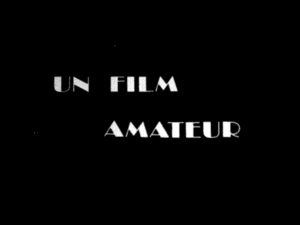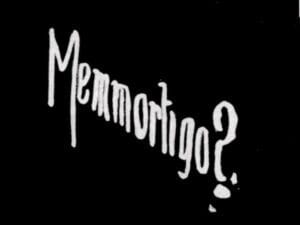

Soon after its first appearance in the 1890s, the medium of motion pictures was almost routinely referred to as a “universal language,” as least as long as they were silent movies in those first 30+ years. By the 1920s an international movement of self-described “amateur” filmmakers also adopted a utopian way of speaking about the power of noncommercial cinema. Fitting then that a twenty-first-century, international partnership among archivists and scholars to preserve films from an international amateur cinema network of the 1930s has restored a film bearing a title in Esperanto, the “international language” invented at roughly the same time as motion picture technology.
At the Orphan Film Symposium on June 17, 2022, Masha Salazkina (Concordia U) & Charles Tepperman (University of Calgary) present “Tracing the International Amateur Cinema Network in the 1930s,” and introduce a screening of a new 4k restoration from Filmoteca de Catalunya in Barcelona. The 14-minute film made in Spain in 1933 uses the title Memmortigo? — the Esperanto word for suicide.
“By the mid-1930s, amateur film organizations had proliferated locally and internationally,” Tepperman writes in the symposium abstract. “The networks that emerged during this period linked together amateurs in Asia, the Americas, Europe and Australia, and trailed only Hollywood in the range of their circulation. This presentation traces the IAC World Tour of amateur films that began in 1934 and circulated films through at least four continents.” Writing for a team of researchers, he continues: “Through the circulation of 16mm films, an alternative film culture emerged and facilitated a cinema of reduced cost but expanded expression. Whether describing their medium as small-gauge film, cinema ridotto [Italian], or amachua rashisa [amateurishness in Japanese], filmmakers around the world forged new opportunities for works to circulate outside commercial channels. . . . Memmortigo? was part of an IAC World Tour, and an ironic look at hope and hopelessness during a decade of increasing social and political despair.”
Charles Tepperman has been part of the Orphan Film Symposium since 2001, when he drove from Ottawa to Columbia, South Carolina, with friend-and-mentor-to-many, Bill O’Farrell, then head of Moving Image and Audio Conservation at was called the National Archives of Canada (now Library and Archives of Canada). Tepperman’s book Amateur Cinema: The Rise of North American Moviemaking, 1923-1960 was a breakthrough historical story in 2014. Co-presenter Masha Salszkina is co-editor with Enrique Fibla of the anthology Global Perspectives on Amateur Film Histories and Cultures (2021).
Like Archive/Counter-Archive, Tepperman’s Amateur Cinema project is a big multi-partnered effort, likewise supported by a grant from the Social Sciences and Humanities Research Council of Canada. The scope of it can be found on this ambitious website and Amateur Movie Database at amateurcinema.org.
Add to this, immediately after the Orphan Film Symposium, the team of researchers will have a multi-day Amateur Film Workshop in Gorizia, Italy. Of which we’ll be hearing more.
Registration for Orphans: Counter-Archives is open to all.
